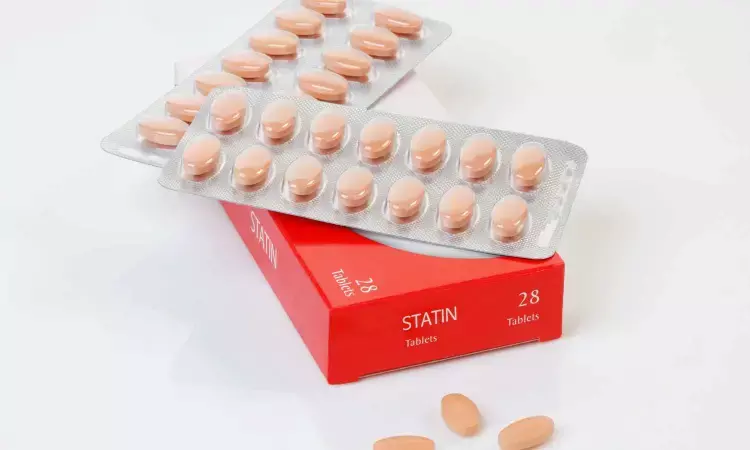- Home
- Medical news & Guidelines
- Anesthesiology
- Cardiology and CTVS
- Critical Care
- Dentistry
- Dermatology
- Diabetes and Endocrinology
- ENT
- Gastroenterology
- Medicine
- Nephrology
- Neurology
- Obstretics-Gynaecology
- Oncology
- Ophthalmology
- Orthopaedics
- Pediatrics-Neonatology
- Psychiatry
- Pulmonology
- Radiology
- Surgery
- Urology
- Laboratory Medicine
- Diet
- Nursing
- Paramedical
- Physiotherapy
- Health news
- Fact Check
- Bone Health Fact Check
- Brain Health Fact Check
- Cancer Related Fact Check
- Child Care Fact Check
- Dental and oral health fact check
- Diabetes and metabolic health fact check
- Diet and Nutrition Fact Check
- Eye and ENT Care Fact Check
- Fitness fact check
- Gut health fact check
- Heart health fact check
- Kidney health fact check
- Medical education fact check
- Men's health fact check
- Respiratory fact check
- Skin and hair care fact check
- Vaccine and Immunization fact check
- Women's health fact check
- AYUSH
- State News
- Andaman and Nicobar Islands
- Andhra Pradesh
- Arunachal Pradesh
- Assam
- Bihar
- Chandigarh
- Chattisgarh
- Dadra and Nagar Haveli
- Daman and Diu
- Delhi
- Goa
- Gujarat
- Haryana
- Himachal Pradesh
- Jammu & Kashmir
- Jharkhand
- Karnataka
- Kerala
- Ladakh
- Lakshadweep
- Madhya Pradesh
- Maharashtra
- Manipur
- Meghalaya
- Mizoram
- Nagaland
- Odisha
- Puducherry
- Punjab
- Rajasthan
- Sikkim
- Tamil Nadu
- Telangana
- Tripura
- Uttar Pradesh
- Uttrakhand
- West Bengal
- Medical Education
- Industry
Statins may reduce heart disease in patients with obstructive sleep apnea

USA: A recent study has found that statins can potentially reduce cardiovascular disease in patients with obstructive sleep apnea (OSA), irrespective of using CPAP (continuous positive airway pressure) machines at night.
The Columbia University researchers found that statins, but not CPAP, protected blood vessels against dangerous inflammatory changes that occur in people with the condition.
CPAP therapy improves sleep quality and reduces daytime fatigue in people with obstructive sleep apnea. But based on findings from several recent clinical trials, CPAP does not improve heart health as physicians originally hoped.
Alternative methods to reduce heart disease in sleep apnea patients are urgently needed because the condition is known to triple the risk of having a heart attack, stroke, or another serious cardiovascular event.
Statins (a class of cholesterol-lowering drugs) may be one such method, according to the new study led by Sanja Jelic, MD, associate professor of medicine at Columbia University Vagelos College of Physicians and Surgeons.
The study included 87 people with recently diagnosed obstructive sleep apnea who were being treated with CPAP. The patients were randomized to receive treatment with either statins or a placebo.
The researchers looked specifically at the CD59 protein, which checks inflammation when stabilized in the blood vessels. A previous study by Jelic’s team showed that CD59, which protects cells against complement (a group of proteins that promote inflammation) activity, is more stable when cholesterol is low. Among study participants, CD59 was stabilized after four weeks of cholesterol-lowering statin therapy, but not with CPAP alone.
“The effect we found with statins is important,” says Jelic. “Inflammation in the blood vessels is a key step in progression of cardiovascular disease, so anything that we can do to stabilize CD59 in these patients is likely to be beneficial for heart health.”
CPAP increases levels of inflammatory protein
The researchers also found that CPAP, surprisingly, increases levels of angiopoietin-2, another protein associated with inflammation and heart disease. Elevated angiopoetin-2 is commonly seen in patients on mechanical ventilation but had never been documented among people using CPAP. In the study, statins lowered angiopoetin-2 levels in patients with obstructive sleep apnea.
“We still believe CPAP is very useful, since it improves sleep and reduces daytime fatigue,” Jelic says. “But CPAP also seems to have negative effects on the cardiovascular system. We need to investigate whether we should use more conservative airway pressures or other less-utilized treatments like oral appliances to treat patients with obstructive sleep apnea.”
Before physicians consider using statins to prevent heart disease in their sleep apnea patients, however, clinical trials are needed to confirm that patients using statins will have fewer heart attacks and strokes in the long term, Jelic says.
Currently, statins are prescribed for only 8% to 13% of patients with obstructive sleep apnea.
Reference:
Riddhi Shah; Neha Patel, Memet Emin, Yeliz Celik, Alondra Jimenez, Su Gao, Jared Garfinkel, Ying Wei, and Sanja Jelic, https://doi.org/10.1513/AnnalsATS.202209-761OC.
Dr Kamal Kant Kohli-MBBS, DTCD- a chest specialist with more than 30 years of practice and a flair for writing clinical articles, Dr Kamal Kant Kohli joined Medical Dialogues as a Chief Editor of Medical News. Besides writing articles, as an editor, he proofreads and verifies all the medical content published on Medical Dialogues including those coming from journals, studies,medical conferences,guidelines etc. Email: drkohli@medicaldialogues.in. Contact no. 011-43720751


